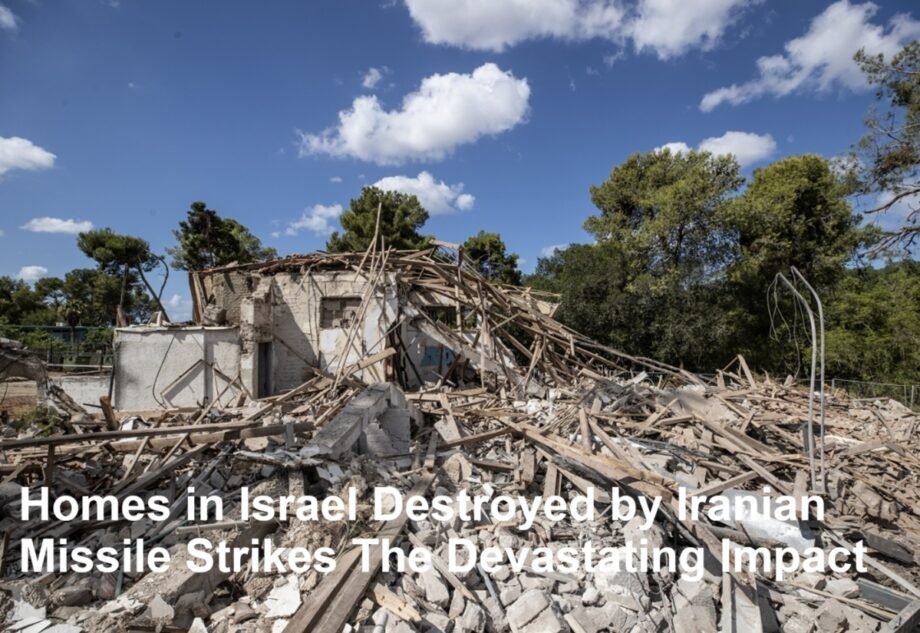In recent developments, missile attacks attributed to Iranian forces have resulted in widespread destruction of residential areas in Israel. The reports confirm catastrophic damage, with entire neighborhoods reduced to rubble and countless families displaced from their homes. This article explores the harrowing consequences of these missile strikes, the human and infrastructural toll, and the broader implications for regional security and humanitarian efforts.
Iranian Missile Strikes and the Scale of Destruction
The missile bombardment targeting Israeli cities has led to unprecedented devastation, with homes completely destroyed, often leaving nothing behind for the affected residents. These attacks have triggered massive evacuations and emergency responses amid ongoing hostilities. The destruction of homes not only inflicts immediate physical loss but also deep psychological trauma on the survivors forced to confront the loss of their safe spaces.
Many affected neighborhoods report total annihilation, with infrastructure reduced to debris. Emergency responders continue their efforts, but the scale of damage poses major challenges for recovery and rebuilding efforts. The impact on families, especially children and vulnerable groups, underscores a pressing humanitarian crisis.
The Human Cost: Displacement and Trauma
Beyond the physical destruction, the missile attacks have caused widespread displacement. Thousands of Israeli citizens face an uncertain future as they seek temporary shelter and essential aid. The loss of homes often means the loss of personal belongings, memories, and stability, leaving survivors vulnerable and traumatized.
Psychologists and aid organizations emphasize the long-term mental health effects on those affected by such traumatic events. The urgent need for psychosocial support and humanitarian relief is critical to help survivors rebuild their lives amidst ongoing conflict.
Regional Security Implications and Escalation Risks
The missile strikes launched by Iran represent a significant escalation in regional tensions. This aggression not only worsens the volatile relationship between Israel and Iran but also heightens the risk of broader conflict in the Middle East. Governments and international bodies express grave concern over the escalation and call for de-escalation and dialogue.
Regional security experts monitor the situation closely, warning that continued missile attacks could prompt retaliatory actions, further destabilizing the area. The destruction of civilian infrastructure raises serious questions about adherence to international humanitarian laws in conflict zones.
Humanitarian Response and International Support
In response to the destruction, humanitarian agencies and governments worldwide mobilize resources to assist displaced Israelis. Emergency shelters, medical aid, food supplies, and psychological services are being deployed to support those affected. Coordination between local authorities and international partners is essential to provide timely and effective relief.
International calls for ceasefire and negotiations aim to alleviate the suffering and create pathways to peace. Rebuilding destroyed homes and restoring community infrastructure will require long-term commitments and cooperation.
Moving Forward: Resilience Amid Ruins
Despite the destruction, the resilience of the Israeli people shines through. Communities come together to support each other, demonstrating strength in adversity. Reconstruction efforts will be critical in the coming months and years to restore a sense of normalcy and security.
The destruction of homes by Iranian missiles serves as a somber reminder of the human cost of geopolitical conflicts. It highlights the urgent need for sustained diplomatic efforts to prevent further loss and promote stability in the region.









